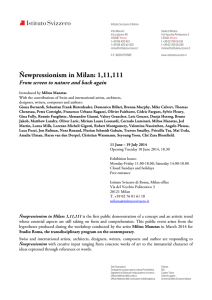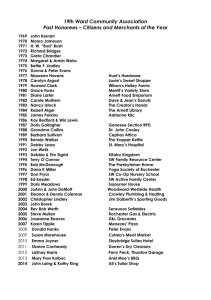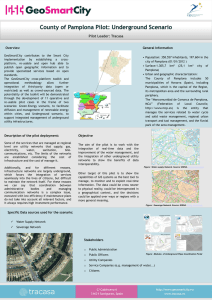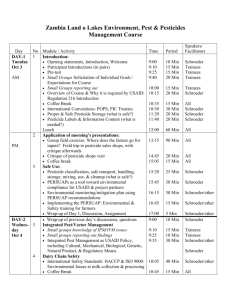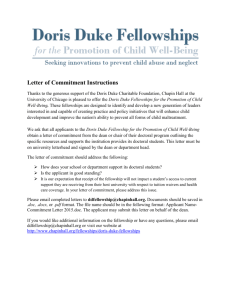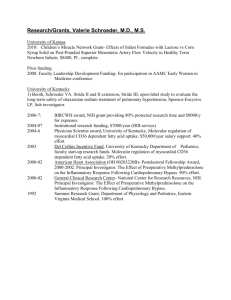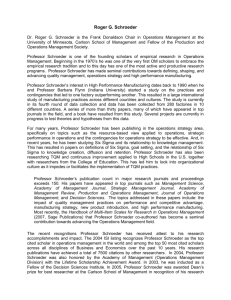Pamplona Meeting, August 2004
advertisement
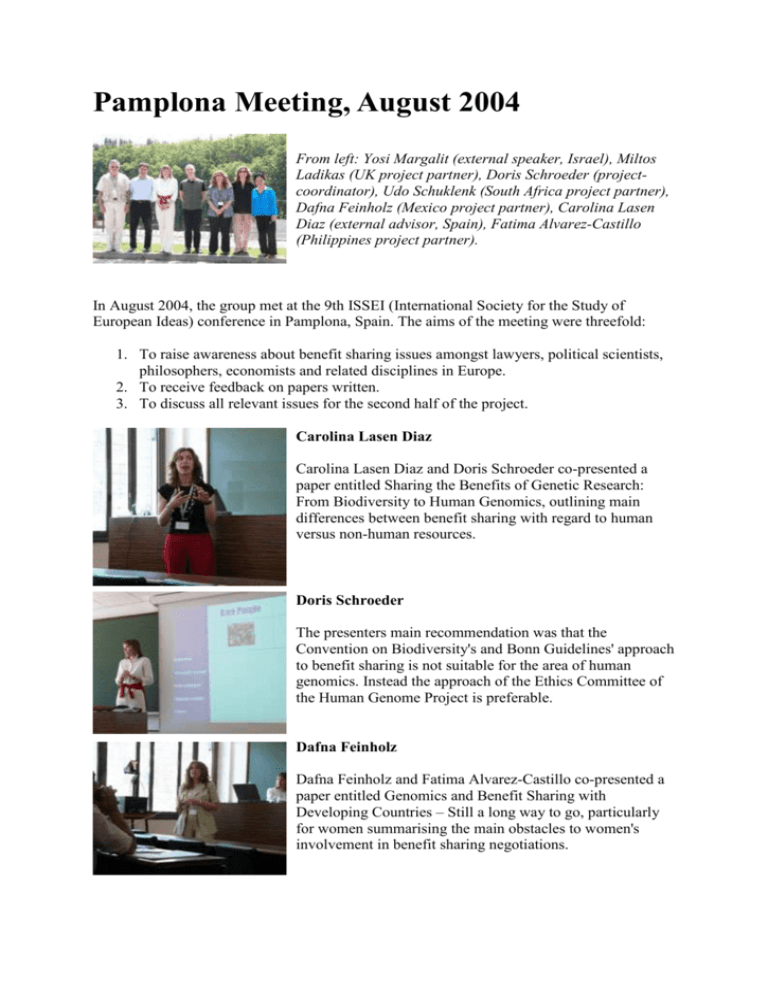
Pamplona Meeting, August 2004 From left: Yosi Margalit (external speaker, Israel), Miltos Ladikas (UK project partner), Doris Schroeder (projectcoordinator), Udo Schuklenk (South Africa project partner), Dafna Feinholz (Mexico project partner), Carolina Lasen Diaz (external advisor, Spain), Fatima Alvarez-Castillo (Philippines project partner). In August 2004, the group met at the 9th ISSEI (International Society for the Study of European Ideas) conference in Pamplona, Spain. The aims of the meeting were threefold: 1. To raise awareness about benefit sharing issues amongst lawyers, political scientists, philosophers, economists and related disciplines in Europe. 2. To receive feedback on papers written. 3. To discuss all relevant issues for the second half of the project. Carolina Lasen Diaz Carolina Lasen Diaz and Doris Schroeder co-presented a paper entitled Sharing the Benefits of Genetic Research: From Biodiversity to Human Genomics, outlining main differences between benefit sharing with regard to human versus non-human resources. Doris Schroeder The presenters main recommendation was that the Convention on Biodiversity's and Bonn Guidelines' approach to benefit sharing is not suitable for the area of human genomics. Instead the approach of the Ethics Committee of the Human Genome Project is preferable. Dafna Feinholz Dafna Feinholz and Fatima Alvarez-Castillo co-presented a paper entitled Genomics and Benefit Sharing with Developing Countries – Still a long way to go, particularly for women summarising the main obstacles to women's involvement in benefit sharing negotiations. Fatima (Tim) Alvarez-Castillo Miltos Ladikas Miltos Ladikas' paper on Participation and CapacityBuilding Issues in Benefit Sharing criticised the top-down approach to capacity-building as envisaged by the Bonn Guidelines. By reviewing the debate on participation in Europe, Miltos argued that the Bonn Guidelines follow a failed concept of participation that is based on one-way education and communication flow. He suggested targeted information campaigns and the instigation of community debates as the main step towards institutional building, and trust building exercises as a precondition for successful benefit sharing agreements. Michael Cloete Michael Cloete, an external speaker from the University of South Africa, presented a paper on Globalisation, Democracy and the Possibility of Dialogue: An African Perspective criticising free market liberalism and introducing the audience to the African philosophy of Ubuntu. One of his questions was whether an alternative economic system could be built on the world view of Ubuntu. The essence of Ubuntu can be described by the belief: "I am through others", explaining the philosophy's focus on solidarity and obligations. Michael's main demand from the paper was that new terms of "development" have to be negotiated, terms that are not dominated by libertarian financial institutions, such as the International Monetary Fund. Udo Schuklenk In Benefit Sharing – Defining “Communities”, Udo Schuklenk developed three main points: 1) Benefit sharing practices regarding traditional knowledge of indigenous communities have the potential to be divisive due to their focus on ethnic communities. 2) The patent system and the concept of communally owned traditional knowledge are incommensurate and to try and ascribe ownership of publicly available knowledge to ethnic groups of individuals can lead to unjust distributions of benefits. 3) Democratically elected national governments are the only possible legitimate body to represent indigenous communities in benefit sharing negotiations (making the current concept of benefit sharing redundant). Yosi Margalit and Miltos Ladikas Yosi Margalit, an external speaker from Israel addressed the issue of representation and participation of indigenous communities in politics by concentrating on Bedouins in Israel. ISSEI Main Panel - Welcome Session ISSEI seeks to study the inventive and creative aspects of the European mind in science, religion, philosophy, art, literature, sociology, politics, history, economics and psychology. Doris Schroeder During the Welcome Session, the project co-ordinator briefly introduced the project and the main issues on benefit sharing to the plenary audience. ISSEI Audience It is with great sadness that we want to note that Sascha Talmor from Israel, one of the cofounders of ISSEI and one of the organisers of the Pamplona conference, passed away unexpectedly on 20 August 2004.

